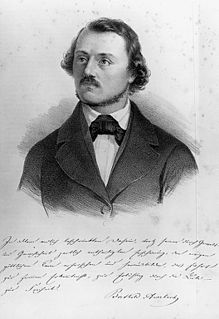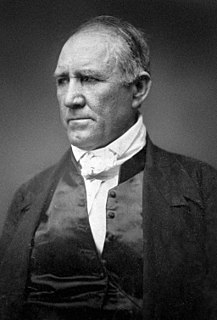A Quote by Horace
Happy he who far from business, like the primitive are of mortals, cultivates with his own oxen the fields of his fathers, free from all anxieties of gain.
Related Quotes
From high Meonia's rocky shores I came, Of poor decsent, Acoetes is my name, My sire was measly born: no oxen ploughed, His fruitful fields, nor in his pastures lowed, His whole estate within the waters lay' With lines and hooks he caught the finny prey; His art was all his livelehood, which he Thus with his dying lips bequeathed to me: In streams, my boy, and rivers take thy chance; There swims', said he, Thy whole inheritance.
Vineyards and shining harvests, pastures, arbors,
And all this our very utmost toil
Can hardly care for, we wear down our strength
Whether in oxen or in men, we dull
The edges of our ploughshares, and in return
Our fields turn mean and stingy, underfed,
And so today the farmer shakes his head,
More and more often sighing that his work,
The labour of his hands, has come to naught.
To take from one because it is thought that his own industry and that of his father's has acquired too much, in order to spare to others, who, or whose fathers have not exercised equal industry and skill, is to violate arbitrarily the first principle of association-the guarantee to every one of a free exercise of his industry and the fruits acquired by it.
We are poor, feeble, and blind mortals when the eye of the Almighty looks through all worlds and by his power executes all things aright, and by his grace, he makes us all rich in Heavenly Gifts. In distress and in bereavements, we can look only to him. From mortals like ourselves we can derive no help.
In some ways, I saw the garden as a metaphor for certain aspects of my life. A leader must also tend his garden; he, too, plants seeds, and then watches, cultivates, and harvests the results. Like the gardener, a leader must take responsibility for what he cultivates; he must mind his work, try to repel enemies, preserve what can be preserved, and eliminate what cannot succeed.



































